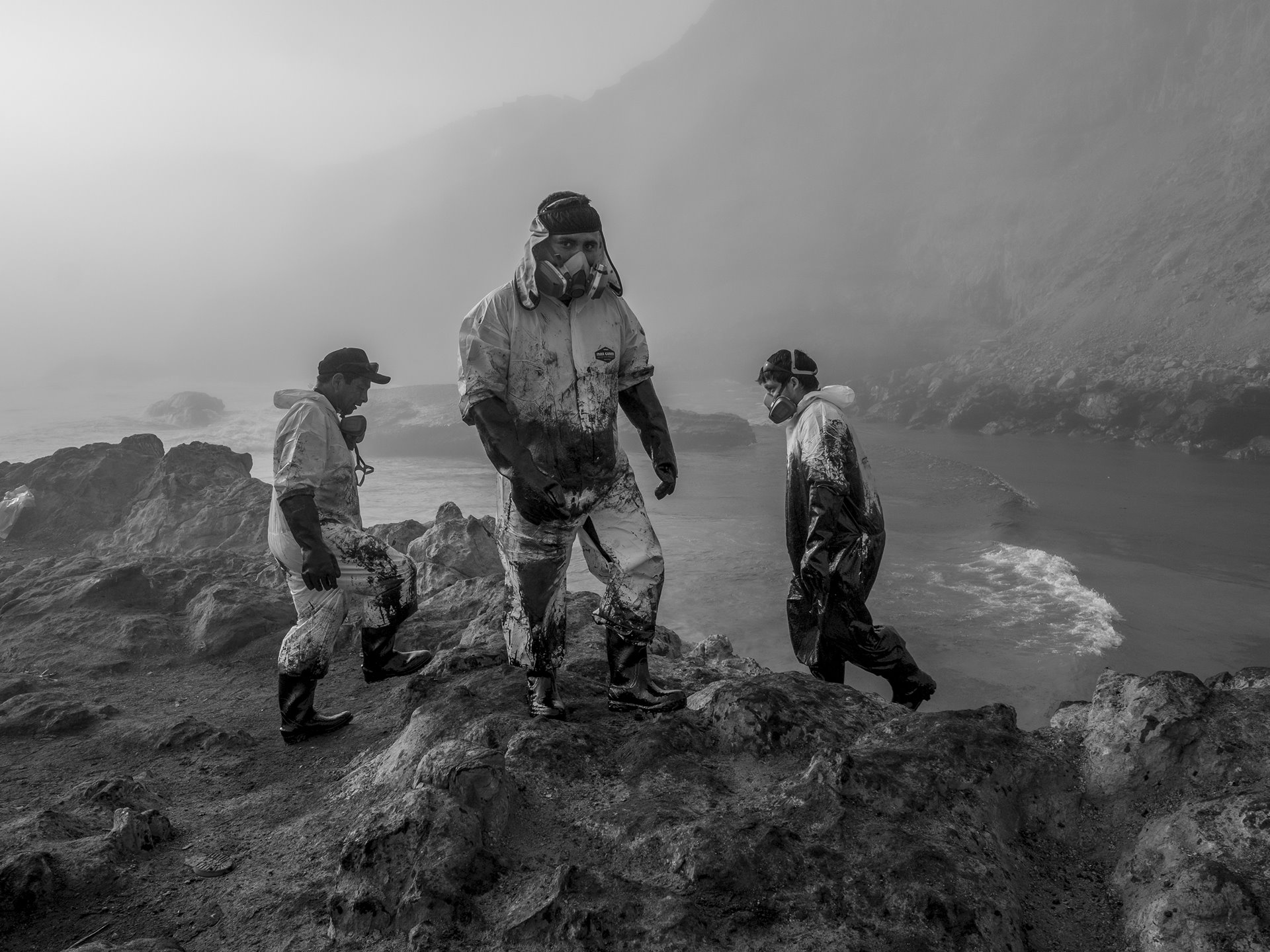Workers at Playa Cavero, Peru, deal with the environmental disaster caused by an oil spill at Spanish transnational oil company Repsol’s La Pampilla refinery nearby.
On 15 January, nearly 12,000 barrels of crude oil spilled into the sea while a tanker was unloading at Repsol’s La Pampilla refinery. Repsol, the Peruvian government, and the Italian tanker company each disputed the cause of the spillage, trading accusations of negligence, inadequacy of equipment, and mismanagement.
The spill extended over 7.13 square kilometers, polluting beaches, killing wildlife, and impacting livelihoods, in what the Peruvian government termed the country’s worst ecological disaster in recent memory.
The oil reached three marine protected areas: Lomas de Ancon, the Pescadores Islets, and Punta Salina. The plankton-rich Peruvian Pacific waters sustain a chain of marine life, from anchovies to dolphins and seabirds. Marine mammals and birds are especially vulnerable, as the oil affects their eyes, nasal tissue and their insulating capacity, potentially leading to suffocation and hypothermia. Commercial fisheries, people relying on tourism, and local communities dependent on seafood for their diets also suffered. UN experts believe the effects of the spill will last up to ten years.
Are you a photographer and/or passionate about press freedom? Sign up for our newsletter to stay updated on our annual contest and to hear about exhibitions near you.

